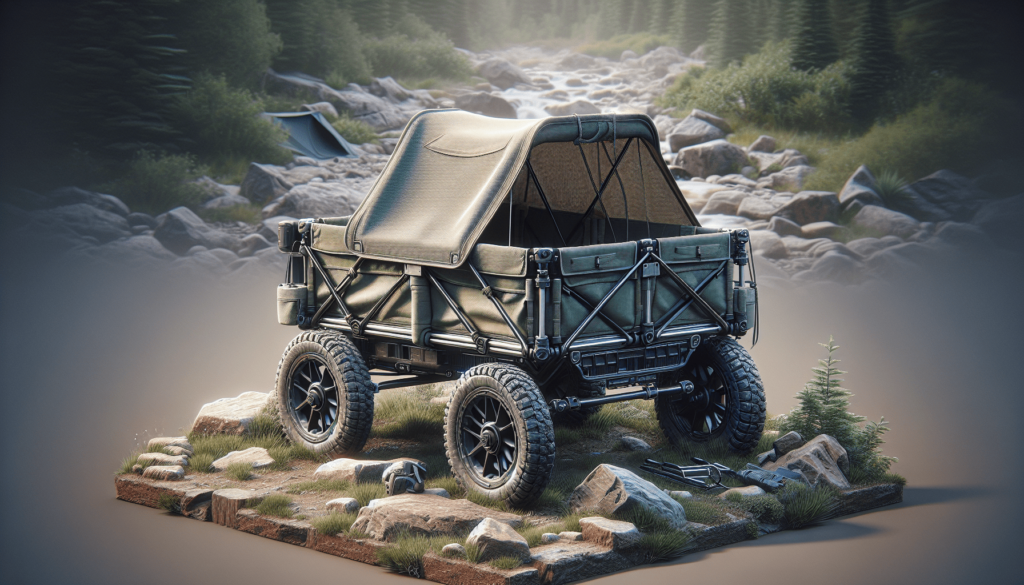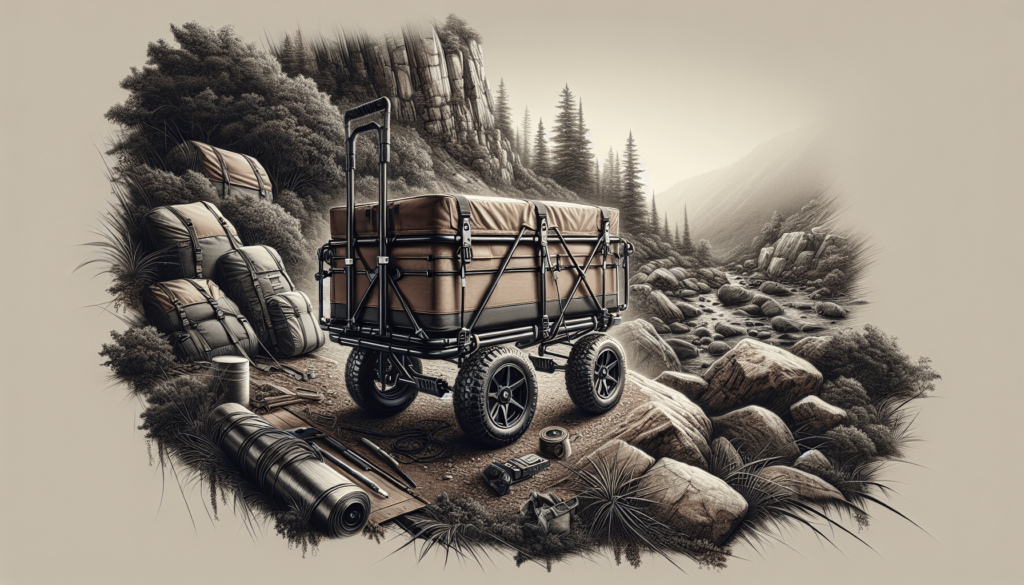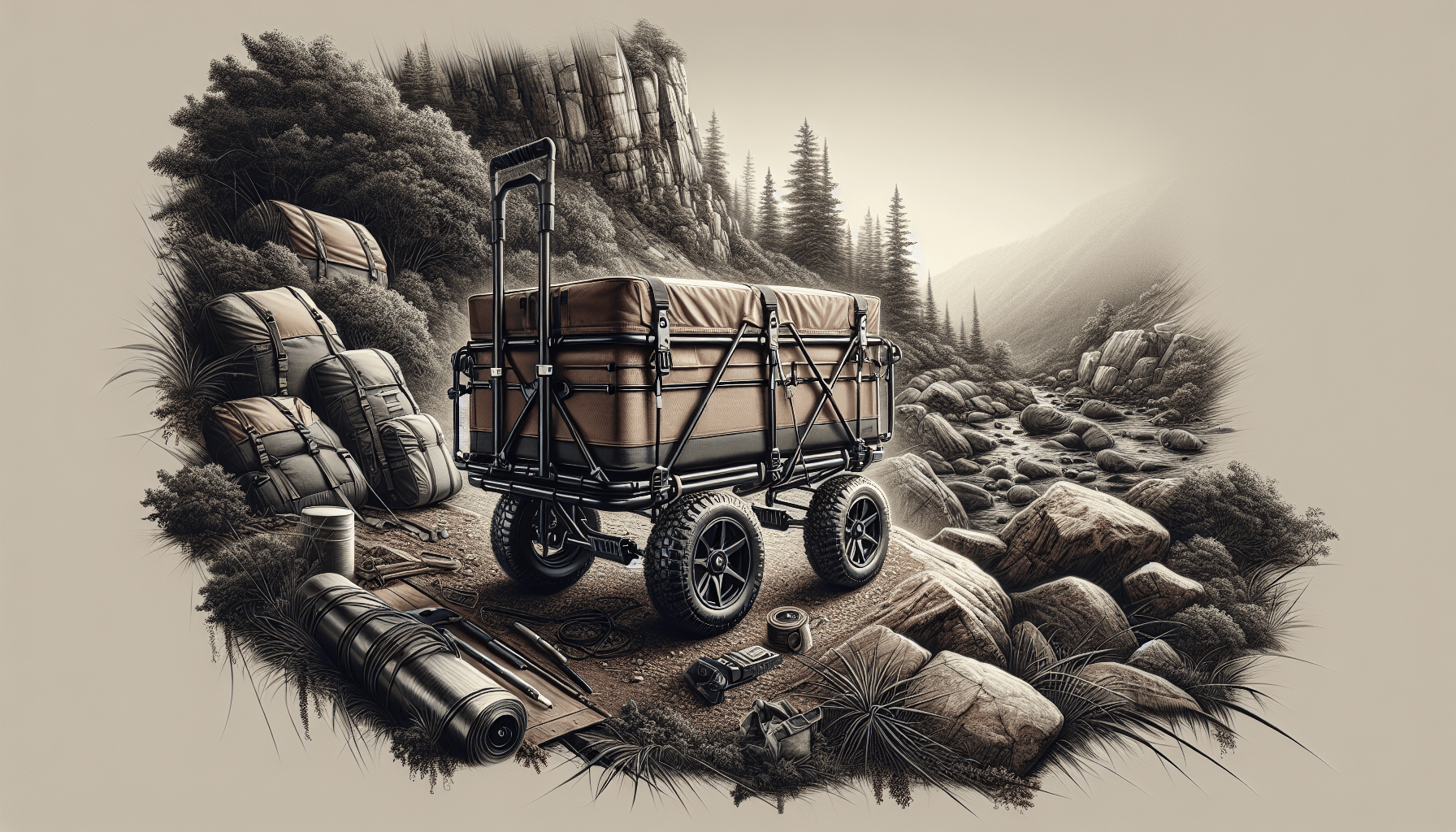Have you ever wondered just how durable a heavy-duty folding wagon can be? You might be surprised to learn the answer to that question can vary quite a bit based on a range of factors. When it comes to folding wagons, especially those marketed as heavy-duty, durability plays a pivotal role in determining their value and long-term usability. Let’s take a closer look at what makes these wagons sturdy, what to look for in terms of durability, and how you can ensure your investment lasts.

The Basics of Heavy-Duty Folding Wagons
At their core, heavy-duty folding wagons are designed to handle heavy loads while remaining compact for storage. These wagons typically find a home in various settings, from outdoor adventures to family outings in the park. Understanding their fundamental features can help you appreciate their construction and, most importantly, their durability.
What Makes a Folding Wagon Heavy-Duty?
When you hear “heavy-duty,” it might evoke images of rugged construction and unmatched strength. In the context of folding wagons, this often refers to:
- Material Quality: Look for fabrics made from tear-resistant nylon or polyester that can withstand the elements.
- Frame Construction: Heavy-duty wagons usually have steel or robust aluminum frames designed to bear more weight than standard models.
- Wheels and Maneuverability: Larger, sturdy wheels made from high-quality materials should allow for smoother navigation over rough terrain.
These characteristics contribute to the versatility and longevity of the wagon, allowing you to rely on it for various activities.
Understanding Material Durability
The durability of heavy-duty folding wagons often comes down to the materials used in their construction. Each component, whether it’s the fabric, frame, or wheels, plays a crucial role in overall sturdiness.
Fabrics Used in Heavy-Duty Wagons
Most heavy-duty wagons are made from high-quality, weather-resistant fabrics. Here’s a breakdown of common materials:
| Material | Description | Durability Level |
|---|---|---|
| Polyester | Light, water-resistant, and breathable. | Medium |
| Nylon | Stronger than polyester, with excellent abrasion resistance. | High |
| Canvas | Classic material known for durability but may not be as waterproof. | Medium to High |
Nylon is often the preferred choice for heavy-duty wagons, thanks to its strength and water-repellent properties.
Frame Materials and Construction
The frame serves as the backbone of your wagon, so understanding what it’s made from is key. Here’s how the different types of frames stack up:
| Frame Material | Description | Weight Capacity |
|---|---|---|
| Steel | Incredibly strong but heavier. | Very High |
| Aluminum | Lightweight and resistant to rust. | High |
| Plastic | Lightweight but less durable under heavy loads. | Low |
A wagon with a steel frame will generally be able to carry a higher load, but if you’re looking for portability, you might prefer an aluminum option.
Assessing Weight Limits
Knowing how much weight a folding wagon can handle is essential. Weight limits often indicate the durability of the materials used, as well as the engineering behind the design.
Standard Weight Capacities
Most heavy-duty folding wagons boast weight capacities ranging between 150 to 400 pounds. When evaluating options, consider the following:
- Manufacturer Specifications: Always check the manufacturer’s recommended weight limit. It can provide valuable insight into the wagon’s durability.
- User Reports: Reading experiences from other users can help you gauge if the durability matches the advertised claims.
- Overloading Risks: Exceeding the weight limit not only risks damaging the wagon but can also make it unsafe to use.

Wheel Quality and Performance
If you’ve ever pulled a wagon, you know the importance of good wheels. They can make all the difference between a bumpy ride and smooth sailing.
Types of Wheels
The wheels used in heavy-duty folding wagons can vary significantly, impacting both their durability and usability:
| Wheel Type | Characteristics | Ideal Use |
|---|---|---|
| Solid Rubber Wheels | Durable, puncture-proof, and great for hard surfaces. | Urban areas, parks |
| Air-Filled Tires | Soften bumps and provide good grip on various terrains. | Off-road adventures |
| Plastic Wheels | Lightweight but may wear out faster. | Short distances only |
Heavy-duty wagons with air-filled tires are often the best choice for diverse terrains, providing both comfort and traction.
Design Features that Enhance Durability
Constructing a heavy-duty wagon involves considering numerous design features that can contribute to its longevity.
Reinforced Seams
One detail that can make a massive difference in durability is the quality of seams. Check for double-stitched or reinforced seams on fabric components; these are typically signs of a well-constructed wagon that can handle heavy loads without tearing.
Foldability and Storage
While it’s essential that your wagon be foldable for easy storage, make sure that the folding mechanism is robust. Weak joints can become a point of failure over time. If possible, physically test the folding mechanism before making a purchase.
Weather Resistance
A heavy-duty folding wagon should ideally be able to withstand various weather conditions. Look for features such as:
- UV Resistance: Protects the material from sun damage.
- Water-Resistant Coatings: Keeps your cargo dry during unexpected rain.
Safety Features
Proper safety features can significantly affect long-term usability. Ensure that:
- Sturdy Handles: Look for comfortable, non-slip grips.
- Braking Mechanisms: A quality wagon should have reliable brakes to prevent rolling on inclines.
Maintenance Tips for Longevity
Even the most durable items require care to extend their lifespan. Here are some helpful maintenance tips for your heavy-duty folding wagon.
Regular Cleaning
Dirt and debris can wear down the materials over time. Following are steps to keep your wagon clean:
- Spot Clean: Use mild soap and water for fabric parts.
- Hose Down: Rinse the frame after trips to sandy or muddy areas.
- Dry Thoroughly: Make sure everything dries completely to prevent mold growth.
Seasonal Checks
Check your wagon before and after major seasonal activities. Ensure that:
- The fabric is intact with no signs of wear.
- The frame is free from rust or any structural issues.
- The wheels are functioning correctly and have adequate pressure if applicable.
Storage Techniques
When storing your wagon, consider the following:
- Indoor Storage: Keep it indoors to protect it from harsh weather.
- Avoid Overloading: Don’t leave heavy items in it during storage to prevent strain on the frame and fabric.
Recognizing Signs of Wear and Tear
Over time, even the most durable wagons can show signs of wear. Here are some indicators to watch for:
Fabric Damage
Inspect the fabric regularly for:
- Tears or Rips: Can compromise the wagon’s capacity and require repair or replacement.
- Fading: Signs of fading could suggest degradation from UV exposure and may indicate it won’t hold up over time.
Frame Integrity
Check the frame for:
- Dents or Bends: May signal that you’ve exceeded its load capacity.
- Rust: On metal frames, rust spots can weaken the structure.
Wheel Functionality
Wheels can wear down faster than other components. Watch for:
- Wobbling or Excessive Noise: Indicates that wheels are not functioning properly and may need to be replaced.
- Flat Spots: On rubber wheels or air-filled tires, flat spots can be a sign of damage.
Cost vs. Durability
Understanding your budget while considering durability is essential. Sometimes, a cheap wagon may seem appealing but can lead to long-term expenses if it needs frequent replacements.
Investing Wisely
When considering your purchase, evaluate:
- Quality Over Price: Sometimes, paying extra for a quality product pays off in the long run.
- Warranty Options: Look for warranties that cover fabric and frame, as they can indicate that the manufacturer stands by their product.
Budget Considerations
You don’t necessarily need to break the bank to get a high-quality wagon. Consider setting a budget and researching options in various price ranges. Often, mid-range models strike a balance between affordability and durability.
Conclusion
As you consider your next heavy-duty folding wagon, remember that durability should be at the forefront of your decision-making process. With the right materials, construction, and features, your wagon can serve you well for years of family outings, gardening needs, or outdoor adventures.
Understanding the ins and outs of heavy-duty folding wagons allows you to recognize what to look for, how to maintain it, and why that durability matters. You certainly want something you can rely on, making your experiences enjoyable and hassle-free. Happy wagon shopping!

